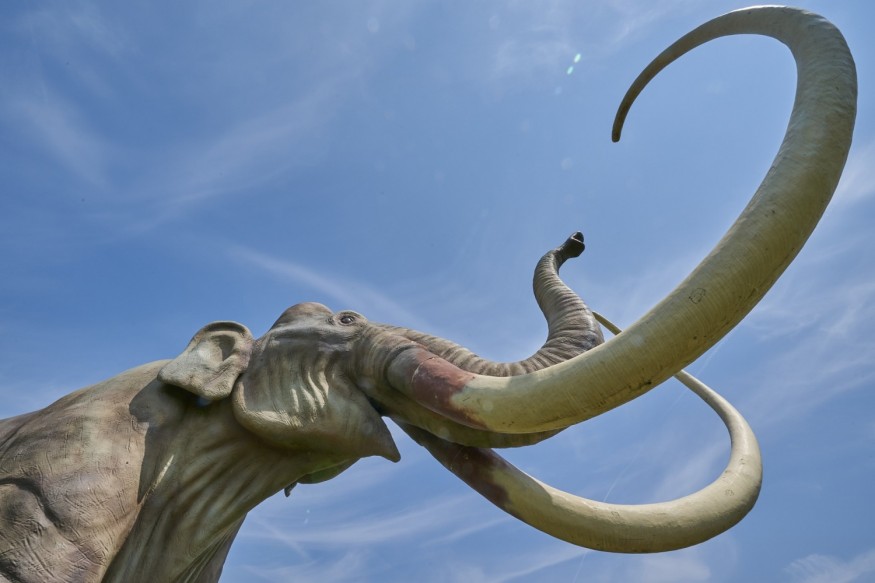
While entrepreneurs like Elon Musk believe that humans must colonize another planet to survive, some others hope to reverse the downward trend of ecosystem degradation. Leading that hope is a project some might believe to be straight out of Spielberg's writing room - the revival of the woolly mammoth.
Colossal Biosciences, a Dallas-based company that launched in 2021 with $15 million in seed funding, is spearheading the project. The Hollywood-esque initiative has been met with a blockbuster reception in its Series A funding, with a $60 million round being led by the likes of Paris Hilton and the executive producer of Jurassic World and Where the Wild Things Are.
Other industry veterans have also rallied to the call, including Thomas Tull, founder and former CEO of Legendary Entertainment, bestselling author Tony Robbins, and even crypto evangelists, the Winklevoss Twins of Winklevoss Capital. The bioscience and genetic engineering company is now valued at around $400 million, with the investment world eager to see further developments. "Our plan was maybe to start looking at a Series A in 2023," said Ben Lamm, co-founder and CEO of Colossal, "but there's so much interest and we got term sheets from multiple people, so we did it much sooner than we thought."
While reviving the woolly mammoth has captured investor attention, Colossal Biosciences has a wider set of ambitions, aimed at developing revolutionary new technologies to advance the fields of de-extinction, species preservation, and human healthcare through genomics. "We're making the path to de-extinction and species preservation a reality by bringing the planet one step closer to reversing the downward trend of ecosystem degradation and the staggering loss of biodiversity through cutting-edge genetic tools," said Lamm. "The technologies and solutions developed through our mammoth restoration project will not only return Arctic elephants to the tundra, but will target larger implications for conservation, science, and humanity."
Colossal Biosciences was formed when technology entrepreneur Ben Lamm heard news of breakthrough research conducted by world-famous genomics researcher George Church, Ph.D. Dedicated to making the impossible possible, Lamm found his match in Church, and both decided to create a company to aid in the creation of disruptive technologies. Lamm is credited with founding five successful technology companies, which include Hypergiant, Conversable, and Chaotic Moon Studios.
Church is a renowned molecular engineer and geneticist known for his contributions to the Human Genome Project and his pioneering work in the field of synthetic biology. He is also known for his research on using CRISPR-based gene editing technologies for a wide range of applications, including the potential reversal of aging and the creation of new organisms with novel properties. Church is a professor at Harvard Medical School and the director of the Personal Genome Project, an initiative that aims to create a publicly available database of genomic and medical information.
Colossal plans to use CRISPR genetic engineering to create an elephant-mammoth hybrid that can survive in the Siberian Arctic tundra, or more specifically a cold-resistant elephant with all the core biological traits of the woolly mammoth. The creature went extinct around 4,000 years ago, and its absence significantly impacted the ecosystem in which it thrived. The disappearance of the woolly mammoth is thought to have contributed to the loss of biodiversity and the degradation of grasslands in the Arctic tundra. Scientists like Church have proposed that bringing back a hybrid elephant-mammoth animal could help to restore balance to these ecosystems by playing a similar role to the one that the mammoth played in the past. For example, the mammoth could help stimulate plant growth by trampling and grazing on vegetation, as well as by dispersing seeds through its feces.
"As the Covid-19 pandemic has demonstrated, scientific innovation - and funding to support it - has never been more important," said Thomas Tull, lead investor in Colossal. "Led by visionary geneticist George Church, Colossal has some of the best minds focused on developing breakthrough tools that are poised to have a material impact on science and biotechnology, from the eradication of diseases to the development of new drugs, CRISPR DNA sequencing, and even solving challenges around reproduction. Companies like Colossal are imperative to our future and I am pleased to be able to continue to support their unique work."
While investors were awed at the prospects of reviving a hybrid version of the woolly mammoth, most have already begun whispering about its future applications in human healthcare. "It's really about the tools they're developing and the ability of George and Ben to do ground-breaking things using artificial intelligence and computational biology, CRISPR DNA sequencing, multiplex gene editing. These are things that I think have the opportunity to be transformative for human health. And as we just saw over the last two years with COVID, there are certainly many vulnerabilities," said Tull.
"With this most recent financing, Colossal is positioned to realize long-researched breakthroughs that can support the restoration of healthy ecosystems. We will soon have the choice of moving from the role of blind destroyer of the world's species toward being the thoughtful kin of all the life around us," said Colossal investor Tom Chi, At One Ventures.
The funding will also allow Colossal to pioneer new software, hardware, and wetware solutions aimed at prolonging human life and aiding in disease prevention. The company has already accelerated hiring across the company's computational biology, embryology, stem cell biology, software engineering, advanced biology, medical device hardware, and genomics departments. Their Scientific Advisory Board also continues to attract world-renowned scientists including Carolyn Bertozzi Ph.D., Kenneth Lacovara, Ph.D., Christopher E. Mason, Ph.D. and Beth Shapiro, Ph.D., who will also act as one of Colossal's paleo genomics leads.
Colossal declared in August 2022 that it also plans to "de-extinct" the Tasmanian tiger, and in September 2022 it launched Form Bio, an independent venture focused on "empowering scientists to accomplish discoveries and breakthroughs in less time and with less work."
© 2025 NatureWorldNews.com All rights reserved. Do not reproduce without permission.





